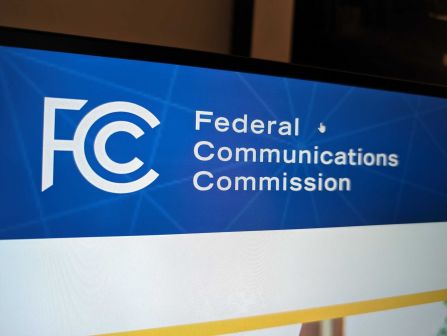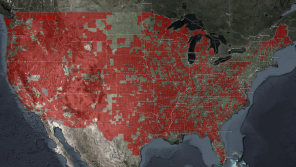
So much of what’shappening in the world of open data and open government goes unadvertised.
Every day,legions of public servants, entrepreneursand volunteers workwith dataand thinkof new ways to nudge the ideals of democracy, government transparency and accountability onward. Cities like New York, ChicagoandLos Angeles all do highly-publicizedcutting-edge work in this space but there’s additional effort in the fieldthat sometimes falls under the radar.
From David Greisen’s mission to maintain a constant living record of the nation’s entire body of legal policy to Trudy Raymundo’s projects to promote conversation and collaboration around complex issues in San Bernardino County, California, the 20 leadershighlighted below chronicle just a small portion ofthe work being done in the open government and open data space today and what theyhope to see next.
These are the unsung heroes of the open government movement advocates of transparency and efficiency who are leading efforts to use data and technology to make a difference.
This list was assembled by the StateScoop editorial staff and industry experts. Is there someone not on this list that we should know about?Let us know here.

Brendan Babb
Chief Innovation Officer
Anchorage, Alaska
What’s your big project in open data/open government right now?
Anchorage was selected as one of seven cities around the world to receive a three-year Bloomberg Philanthropies grant to set up an Innovation Team. Anchorage is currently setting up the team and focusing on economic opportunities in three underserved neighborhoods. We are leveraging open data to learn as much as we can about each neighborhood. We also set up our first open data portal in February of this year and the Anchorage Museum just leveraged housing open data to create visualizations on display in the museum.
How is this work changing how government does business?
The Innovation Team helped work with the treasury on a Behavioral Insights Team project to improve demand letters for overdue traffic citations (not parking tickets) that has increased revenue collection for the municipality. The property appraisal department has started referring people to the open data portal to answer their questions instead of requesting custom reports.
What’s one change you would like to see in the open government space?
I would like to see government software have the ability to download data in bulk and/or APIs by default.

Melissa Bridges
Performance & Innovation Coordinator
Little Rock, Arkansas
What’s your big project in open data/open government right now?
The City of Little Rock recently launched its Citizen Connect site that allows residents to see the police incidents and non-emergency 311 requests for service in one easy-to-understand platform. By typing in an address, be it their house, child’s school or place of business, they can quickly see what is happening around them. Even more helpful, they can sign up for emailed alerts when an incident type of their choosing has occurred. We want to add additional datasets that include unsafe or vacant properties, business licenses, and fire incidents. By having all this information in one place, we are making it easier for our residents to get a compete picture of what is happening in their city.
Our Open Data Portal just won the Digital Pioneer Award from the State of Arkansas at the Digital Government Transformation Awards. We are proud to be recognized for our work and continue to vet additional data sets to add to our portal. We have had an increase in requests for additional datasets from the community and academic researchers interested in collaborating with the city to use data to answer questions.
How is this work changing how government does business?
Our departments are really starting to see the benefit of putting our data out to be consumed by our community. Just this year our Housing and Neighborhood Programs Department has started a CodeStat meeting for the neighborhood associations across the city’s seven wards. The meetings include the 311 manager going over statistics for that part of the city and making sure our residents know how to use that system. The code enforcement staff for a given part of town explains the issues they are seeing and how they are using the data to allow them to be more proactive in dealing with issues. And lastly, we show them the open data portal and Citizen Connect site so they understand where to go to get more information and how to interact with it. These meetings have led to more invitations to take deeper dives into the city’s data and more questions being asked of our data and how to release more of it.
Little Rock will also be publishing a performance measurement site soon and I’m happy to say our police department is leading the way. Our chief and city manager both see the value of open data and adding in measurements that we can share with our community in a format that is easy to understand. We hope to get away from 300-page budget books or reports and move towards an interactive platform that allows the user to find what they are looking for quickly.
What’s one change you would like to see in the open government space?
I think Little Rock, like most cities, has lots of information but we don’t always do a good job of sharing nor of teaching our employees or residents how to interact with it. We are actively looking for ways to continue breaking down data silos and push to put the data together to give a more holistic picture to our employees, elected officials and residents alike. I am personally very excited that the University of Arkansas at Little Rock now has a chief data officer program and the State of Arkansas is hiring its first CDO. This is a huge step forward for our city and state.The more we can educate people that releasing data and using it to make better decisions helps everyone in the long run, the better off we will be.

Brandon Crowley
Chief Data Officer
Cincinnati, Ohio
What’s your big project in open data/open government right now?
The City of Cincinnati is not currently at work on a big project per se in open data/open government.However, we are constantly at work improving the quality of data we publish to our transparency portals (Open Data and CincyInsights) as well as adding new datasets to our open data catalogue. For instance, we will be releasing two additional datasets for the White House Police Data Initiative (PDI) for arrests and an improved crime incident dataset. We are working to ensure this data is anonymized (i.e., scrubbing the address location and skewing the position of the latitude and longitude coordinates) and complies with our data governance guidelines before we make this data available to the public.
How is this work changing how government does business?
The Office of Performance and Data Analytics (OPDA) strives to make the availability, quality, presentation and usability of data as routine as checking your email. In other words, our customers city administration, department directors, and management staff depend on their access and availability of data to enhance operations and decision making. In the City of Cincinnati, the analysis of data has become a common practice. It would have been rather challenging for us to arrive in this space if we did not have a progressive and supportive city administration.
What’s one change you would like to see in the open government space?
Personally, I would like to see more collaborative efforts like the White House Police Data Initiative. While state and local municipal organizations may have a variety of systems/solutions to support their operations, I believe the open data space/market would have a greater collective impact if there was a consortium (of sorts) that would drive the quality, uniformity (i.e., common attributes) and frequency of data. Perhaps this is nave thinking. However, can you imagine a network where state and local municipal organizations agreed to publish common attributes from their respective source systems? We would have a vast public data offering where predictive models could be developed to prevent and enhance the lives of many.

David Doyle
Open Data Program Manager
Seattle, Washington
What’s your big project in open data/open government right now?
While we have several priorities listed in our 2017 Open Data Plan, our main focus for this year has been to improve the discoverability and quality of our open data platform. Seattle has been publishing open data since 2010, and before we could tackle some new and exciting initiatives we felt we needed to step back and make some improvements to the platform and how people experience it. In June, we launched our redesigned portal, and currently we are auditing our platform to improve the contextual information of our many datasets. Additionally, were working hard to ensure all datasets are refreshed frequently, with more and more datasets being automated. All the while, our city departments have been publishing many new open datasets. Because of these efforts, were confident that our improved open data portal and platform will help accelerate the development of innovative apps and services, provide our residents and city staff with even more opportunities to leverage our open data, and allow us to work towards some major advances in our open data platform in 2018 so be sure to check out our 2018 Open Data Plan when its published!
How is this work changing how government does business?
One of the four goals of our open data policy is to empower city employees to be more effective, better coordinated internally, and identify opportunities to better serve the public, and we have been partnering with staff from across the city in helping them use open data to improve both internal operational efficiency and how we deliver services to our residents. Our open data program has been very useful in enabling easier sharing of departmental data. A great example of these partnerships is the Business Decision Engine, created by our Office of Economic Development, where entrepreneurs have easy access to city open data and partner agency data that together can help business owners make choices about where and how they do business in Seattle. Not only is this application extremely useful for entrepreneurs, it has also proven very beneficial for other city departments who can also use these data for their own departmental initiatives. This is just one example of how departments across the City of Seattle are collaborating in the sharing and usage of open data.
What’s one change you would like to see in the open government space?
As someone who has only recently moved into the public sector after a long career in the private sector, I think governments in general are still figuring out what are the appropriate levels of investment they need to make in data science. Certainly, there is a culture shift happening when it comes to using data to influence decision making within government but in my opinion, it is nowhere near enough to whats required to truly transform how government operates. Open data has been one key way for governments to experiment with data and gain a better understanding of how data can have positive impact both inside and outside of the organization, and so its been exciting for me to play a role in helping make this longer term cultural change a reality here in Seattle.

This story was featured in StateScoop Special Report: Open Government (2017)





